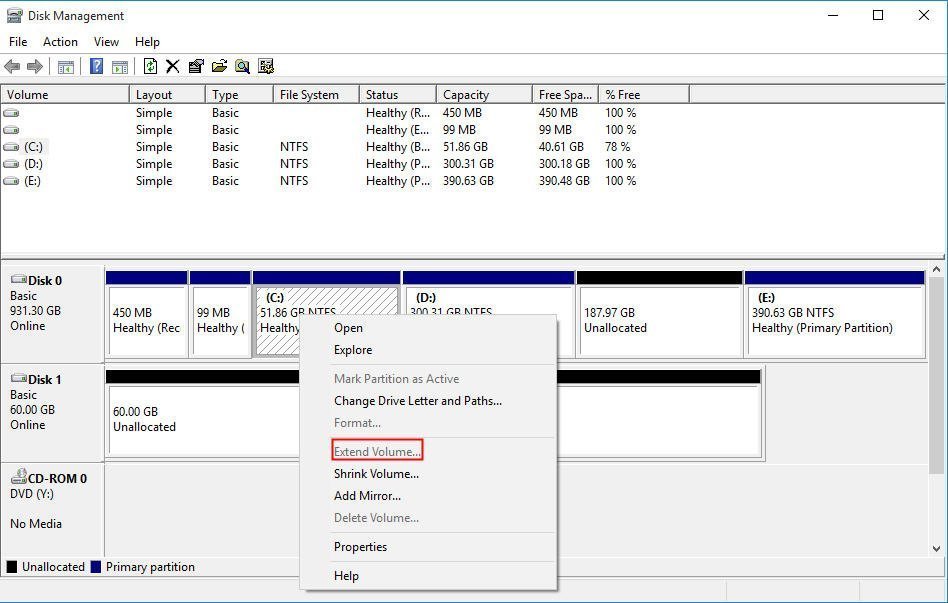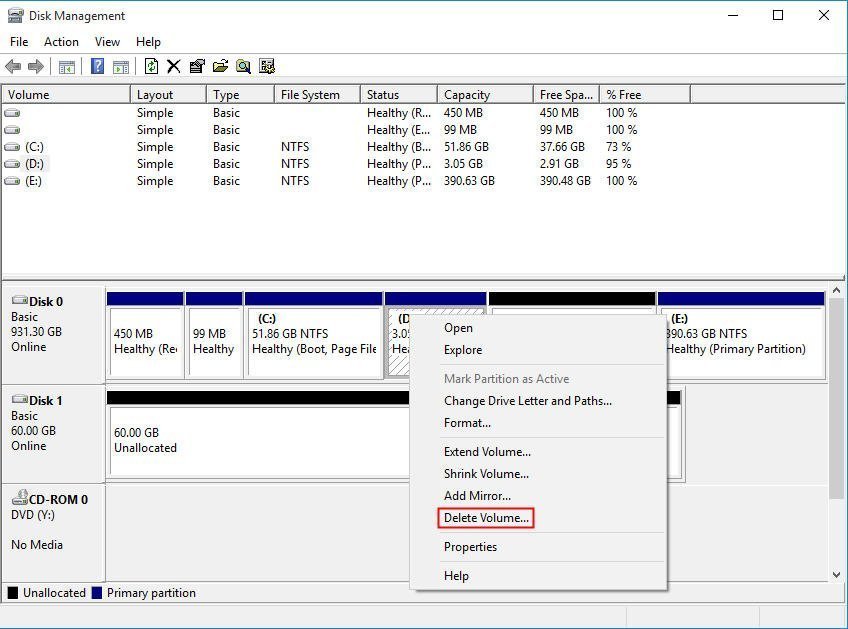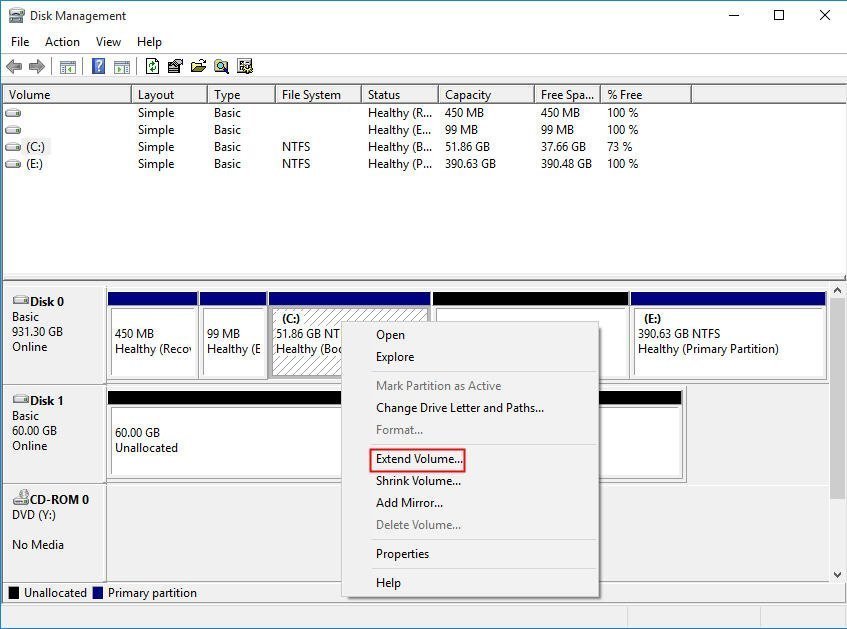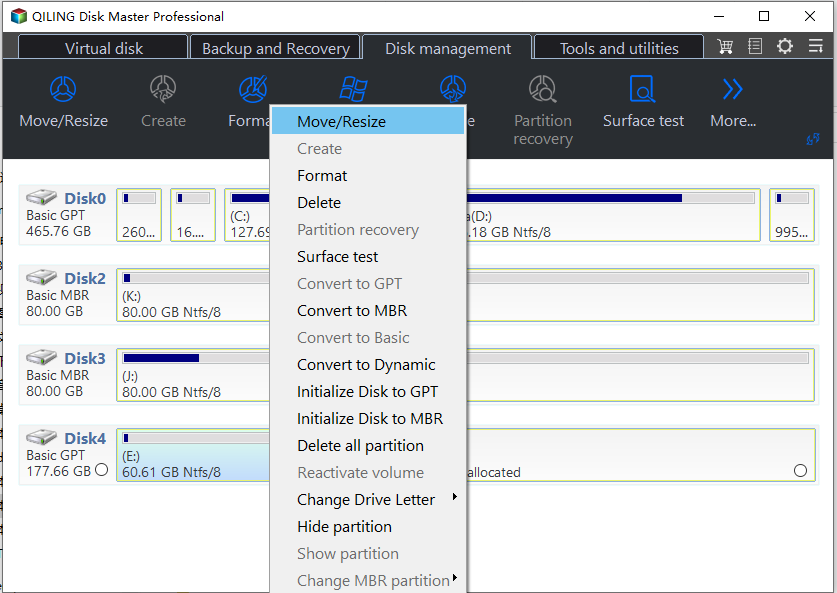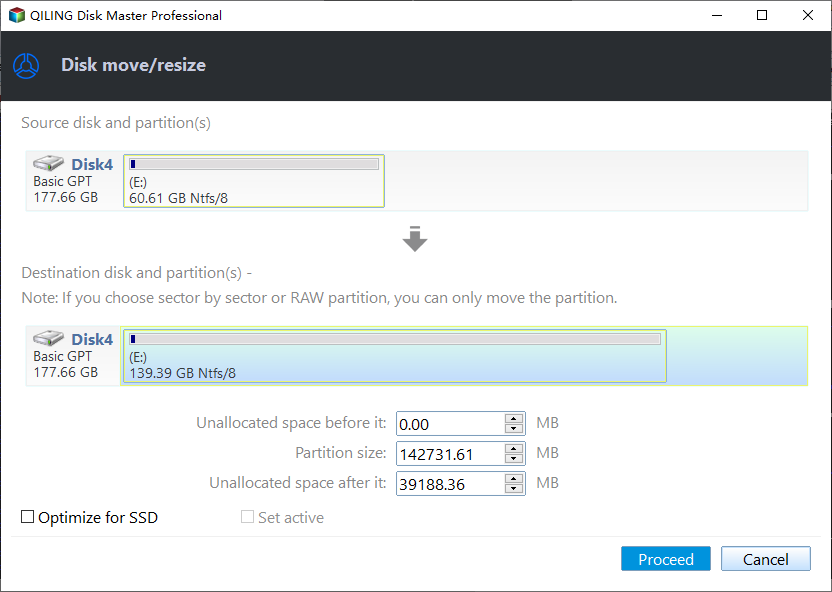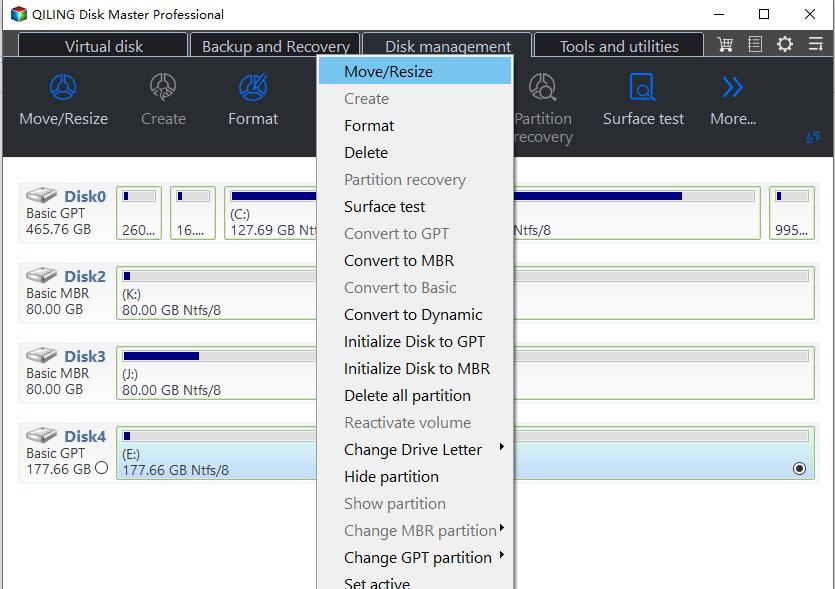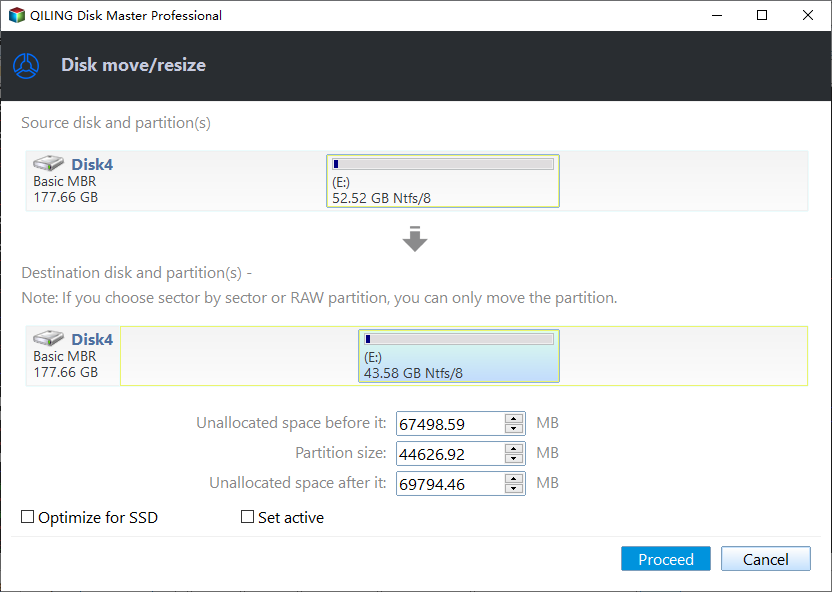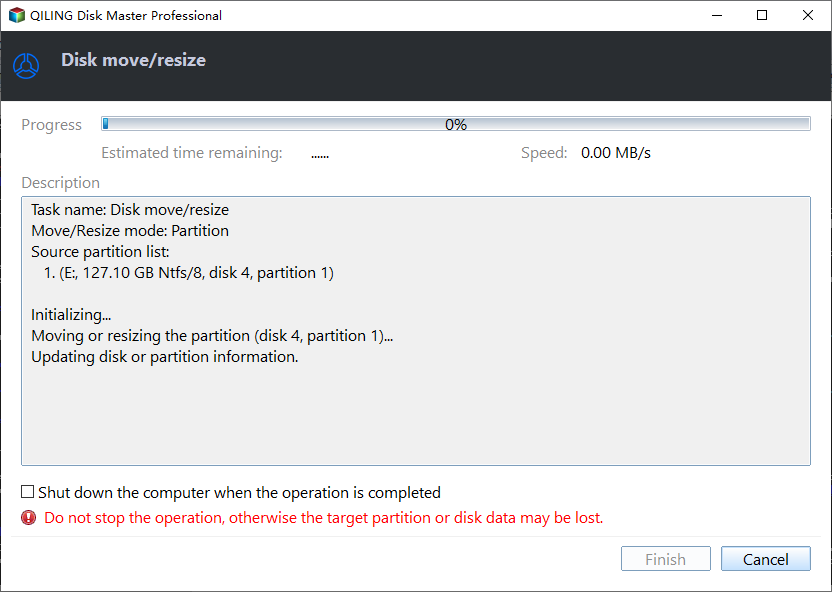Unable to Extend C Drive in Windows 11/10/8/7 [3 Solutions]
- Navigation
- Cannot extend C drive Windows 10
- Solution 1 - Create a qualified unallocated space in Windows 10
- Solution 2 – Merge unallocated space to C drive in Windows 10 or 11
- Solution 3 – Allocate free space from D drive to C drive in Windows 10 or 11
- Wrap things up
Cannot extend C drive Windows 10
When your C drive is almost full after Windows update or installed with many applications, you may want to extend it to fix the issue. But when you try to increase the size of your C drive, you may find that the option of Extend Volume… greyed out and you are unable to extend C drive in Windows 10 when there is (without) an unallocated space.
Solution 1 - Create a qualified unallocated space in Windows 10
When the unallocated space is not right contiguous to the C drive, you will be not able to extend C drive in Windows 10 directly. To make Extend Volume… work, it is necessary to create an unallocated space right contiguous to your C drive. The steps are listed below
Step 1. Right-click D drive (the partition between C drive and the unallocated space) and choose Delete Volume…
* If you don't want to lose the data stored on the D drive, make a backup before deleting it.
Step 2. It pops up a window prompting you that deleting this volume will erase all data on it… Click Yes to continue.
Step 3. Now, you'll get an unallocated space right contiguous to your C drive. Right-click the C drive and choose Extend Volume... and do as the next prompt to complete the operation.
Solution 2 – Merge non-adjacent unallocated space to C drive in Windows 10 or 11
If you are unable to extend C drive in Windows 10 Disk Management without deleting any partition, you can turn to Qiling Disk Master Professional, which can work under Windows 11/10/8/7, XP, and Vista. It is featured with a function – Merge Partitions, allowing you to add the non-contiguous unallocated space to C drive directly instead of deleting any partition. And if you need, you can resize BitLocker partition to adjust partition size.
The step-by-step guide on how to extend C drive with non-contiguous unallocated space.
Step 1. Install and run it. In the main interface, right-click C drive and choose Advanced > Merge Partitions.
Step 2. In the Merge Partitions interface, drag to Unallocated and C:.
Step 3. Here you can preview the operation. Click Proceed after confirming it.
Note: Qiling Disk Master can also help you to reduce the size of C drive when you are unable to shrink C drive within Disk Management.
Solution 3 – Allocate free space from D drive to C drive in Windows 10 or 11
When there is no unallocated space on the disk and D drive has enough free space, you can allocate free space from D drive to C drive to extend C drive via Qiling Disk Master Professional. Do the following steps:
Step 1. Install Qiling Disk Master Professional and run it. Right-click D drive and choose Allocate Free Space.
Step 2. In this window, set the amount of free space that you want to allocate from D drive and select C drive as the target drive.
Step 3. You can preview the result after allocating free space to C drive. After confirming, click Proceed to carry out the operation.
Notes:
▪ This operation may change the original location for your data but will not delete them, yet, in order to guarantee the safety of your data, you can learn the tutorial "How to Safely Partition" before executing this operation.
▪ To extend C drive without losing data in Windows Server 2019/2016/2012/2008/2003, you can use Qiling Disk Master Server.
Wrap things up
You will be unable to extend C drive in Windows 10/11 Disk Management when there is no contiguous unallocated space. It is acceptable to get a proper unallocated space by deleting partition. But the whole process is time-consuming. Thus, it is advised to choose one from the latter two solutions. If there is unallocated or free space, pick solution 2. If there is no such space, you can choose solution 3.
If the entire system disk is too small, you can copy the disk to a larger disk via Qiling Disk Master, thus you can replace it with a larger one without reinstalling Windows and other applications. If you don't want to change partiton size of C drive when it is almost full, you can transfer installed apps on C drive to another drive.
Related Articles
- How to Resize C drive in Windows Server 2019/2016/2012/2008/2003 Effortlessly?
When you can't extend or shrink C drive in Windows Server 2019, refer to the article and you can realize detailed steps about how to resize C drive in Windows Server 2022/2019/2016/2012/2008/2003. - How to Clone OS Drive to SSD/HDD in Windows 7/8/10?
How to clone an OS drive to another SSD or HDD in Windows 11, 10, 8, 7? In this post, a powerful third-party disk cloner will be introduced to help with the OS disk clone. - No Free Memory-How to Increase Memory of C Drive?
Find your computer works slower and slower? It's time for you to increase memory of C drive. Get effortless methods from this page.
